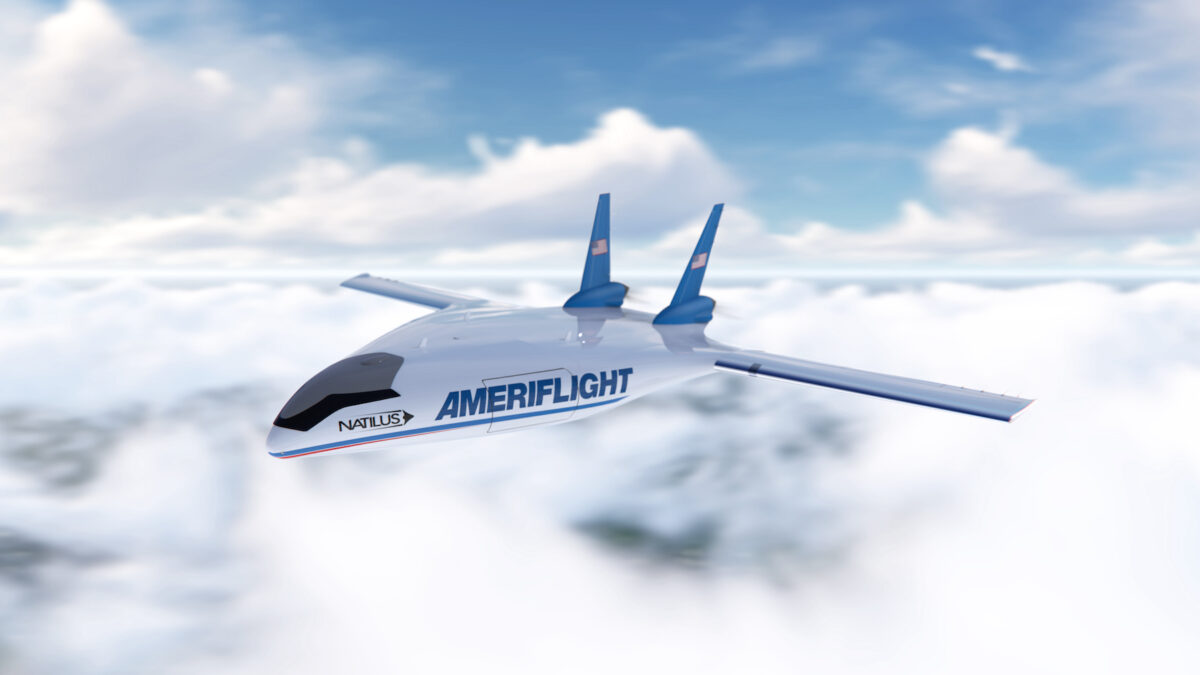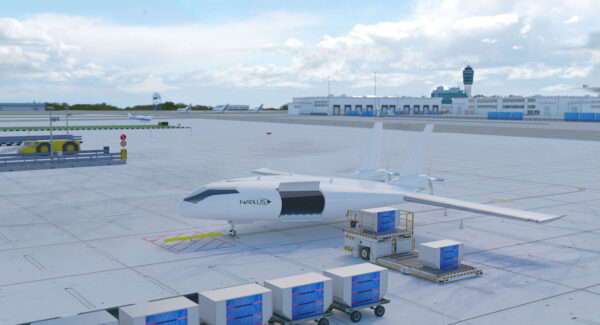


Cargo carrier Ameriflight has announced its $134 million deal to buy 20 autonomous regional freight aircraft from San Diego-based Natilus.
The conditional purchase agreement marks Natilus’ first sale of its Kona 3.8T blended-wing-body (BWB) remotely-piloted aircraft to a U.S.-based company, according to a news release.
“Through this strategic partnership, we are positioning Ameriflight to build the roadmap for the future in cargo operations and be the first regional operator for Natilus in the United States,” said Ameriflight President and COO Alan Rusinowitz.
Ameriflight, headquartered in Dallas, Texas, is the largest Part 135 private commercial charter airline in the country.
The cargo carrier moves high-priority freight to approximately 200 remote destinations across the U.S., Canada, Mexico, the Caribbean, and South America, for overnight express carriers such as UPS and FedEx.
The company operates short-haul feeder flights using small aircraft such as the Beechcraft 1900C, Fairchild SA-227 Metroliner, and Embraer EMB-120.
“In looking forward, adding this state-of-the-art aircraft will complement our fleet and increase our aptness, allowing us to expand on what we do best and ensuring the success of additional business growth opportunities we have underway,” Rusinowitz said.
Ameriflight did not respond to The Epoch Times’ request for more information.
The carbon fiber BWB-designed aircraft provides better fuel efficiency and approximately 60 percent more cargo volume, as well as reducing carbon emissions by half, the Natilus website states.
“Natilus’ technology is at the forefront of autonomous innovation and provides a lower cost of operation while remaining well suited in capabilities for the customers in our corner of the industry,” Rusinowitz said.
The Kona 3.8T will have a range of 900 nautical miles, a cruising speed of 220, and a 4.3 metric ton payload. Its diamond configuration will allow it to carry more cargo with reduced drag.
“Innovation in design allows the Natilus fleet to carry more volume at lower costs, and the exploration of new sustainable fuels will lower carbon emissions,” said Natilus CEO Aleksey Matyushev.
The company believes that unmanned aerial vehicles (UAV) will help strengthen the supply chain by enabling access to new and emerging markets that lack infrastructure or runway capacity for larger aircraft.
“Developing autonomous solutions that are purpose-built to address the needs of the air cargo market is one important step toward developing more robust long-term solutions,” said Matyushev, who is also a company co-founder.
UAV technology may also offer a solution to the labor shortage in the airline industry.
“Autonomous technologies seek to utilize labor more efficiently by allowing a single pilot to control multiple aircraft, helping address the dire pilot shortage,” Matyushev added.

